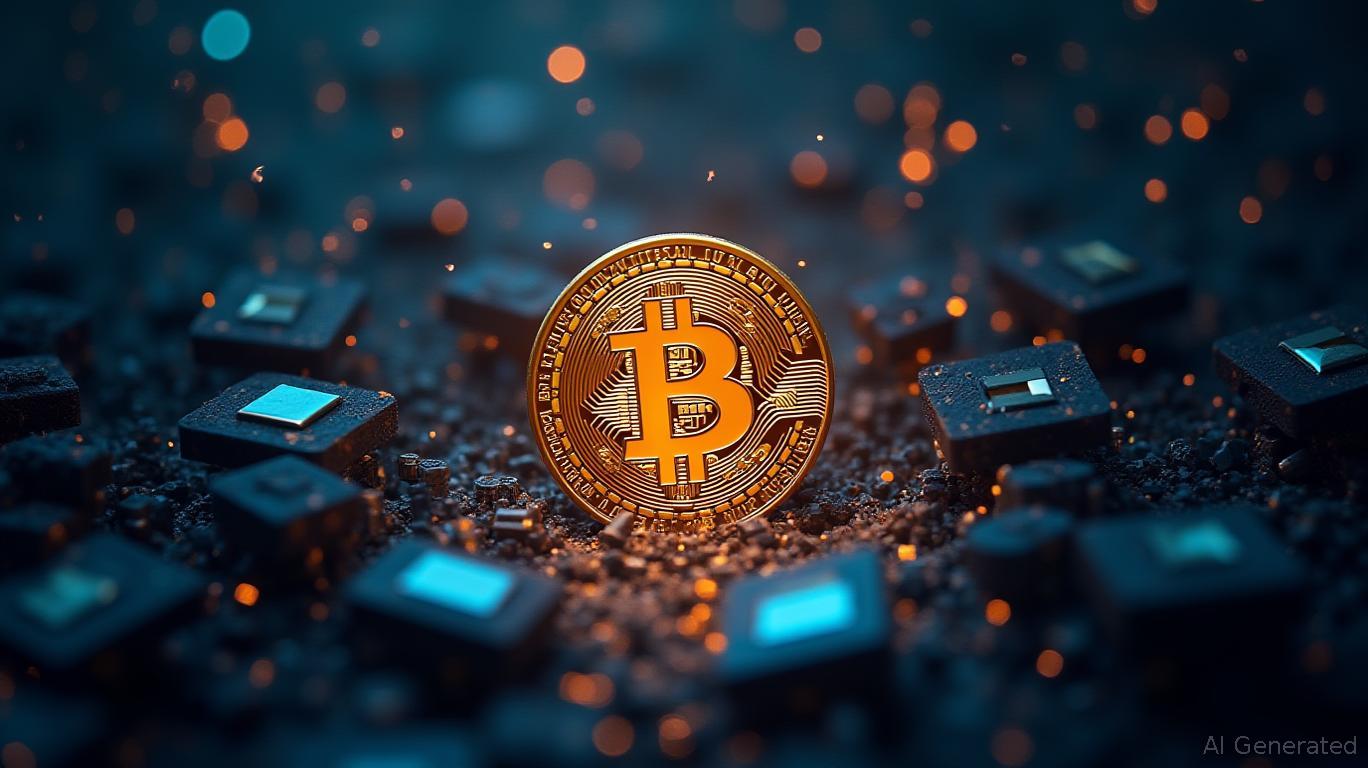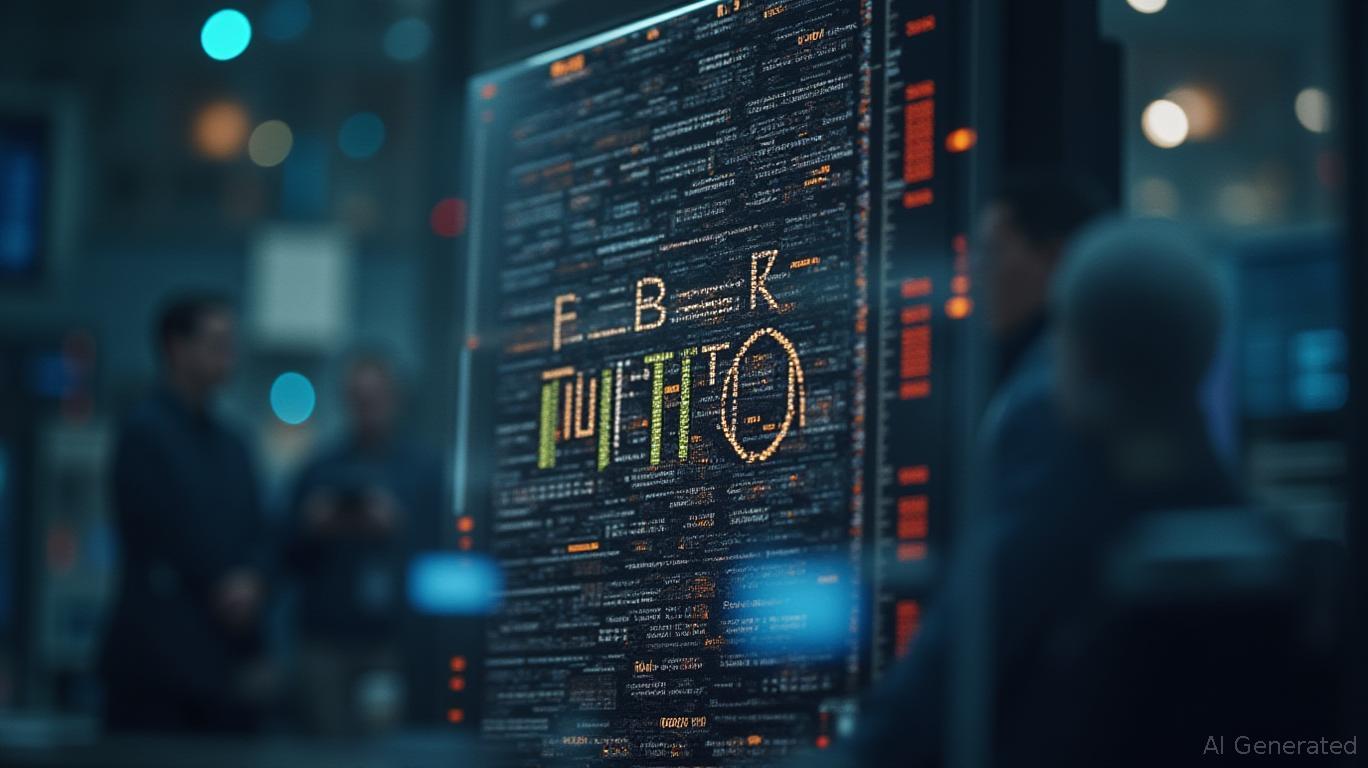Bitcoin News Update: Efforts to Improve Bitcoin's Efficiency May Threaten Decentralization Amid Spam Challenges
- A Bitcoin soft fork proposal to reduce spam transactions sparks debate over efficiency gains vs. centralization risks. - Critics warn mining pools could prioritize transactions, undermining decentralization as institutional adoption grows. - Market activity surges with Binance's BNB rising 8% post-Trump pardon and a16z raising $10B for crypto initiatives. - Exchange security concerns persist after WazirX and Bunni hacks, with soft fork advocates citing potential cost reductions. - Regulatory shifts and t
A suggested
The idea, recently debated in developer meetings, aims to tackle the surge of low-value transactions congesting the blockchain. These spam transactions, often created by bots or bad actors, have become more common as Bitcoin’s price climbs and institutional interest grows, according to an

The timing of this proposal aligns with a notable increase in Bitcoin-related activity. Binance’s token (BNB) jumped more than 8% after President Trump granted a pardon to co-founder Changpeng Zhao, boosting investor optimism in the exchange and its network, according to
Regulatory changes have also influenced the ongoing discussion. Trump’s pardon of Zhao, who completed a four-month sentence for anti-money laundering offenses, has been portrayed as a positive move for crypto policy in an FXStreet analysis. This comes after a period of stricter enforcement under the Biden administration, with Binance agreeing to a $4.3 billion settlement in 2024, as covered by Bloomberg. Opponents of the soft fork suggest that regulatory reforms, rather than technical changes, should address spam and illegal activities, a perspective echoed in Crypto.News commentary.
The possible effects on smaller exchanges remain a point of concern. For example, WazirX recently restarted operations after suffering a $234 million hack in 2024, highlighting the vulnerability of exchange infrastructure to new threats. Similarly, decentralized exchange Bunni closed in 2025 after an $8.4 million exploit, citing a lack of resources for security audits, with both incidents reported by Crypto.News. Supporters of the soft fork argue that cutting down on spam transactions could help exchanges reduce costs and indirectly strengthen security, a view also mentioned in the a16z report.
Market trends add further complexity to the issue. Kraken’s revenue doubled to $648 million in the third quarter as it moves toward an IPO, while Coinbase’s $375 million acquisition of on-chain fundraising platform Echo points to industry consolidation, according to Crypto.News. Bullish, another exchange, is seeking a $4.8 billion valuation in a larger IPO backed by BlackRock and
The outcome of the proposal depends on agreement among both developers and miners. While initial talks are technical, broader questions about Bitcoin’s governance are coming to the forefront. As highlighted in the a16z report, the trend toward institutional adoption is accelerating, with stablecoins and regulatory clarity playing key roles. Whether the soft fork is implemented will likely depend on finding a balance between innovation and Bitcoin’s foundational principle of decentralization.
Disclaimer: The content of this article solely reflects the author's opinion and does not represent the platform in any capacity. This article is not intended to serve as a reference for making investment decisions.
You may also like
Ethereum News Update: Security Concerns Arise for Ethereum's Layer 2 Solutions While Solana Attracts Increased Institutional Interest
- Solana co-founder Anatoly Yakovenko criticized Ethereum L2s for lacking mainnet-level security, sparking debates over centralization risks and technical vulnerabilities in scaling solutions. - Fidelity added Solana to its platforms, reflecting growing institutional adoption, while Ethereum's L2 expansion faces scrutiny over liquidity fragmentation and L1 staker revenue dilution. - Market sentiment diverges: Ethereum sees whale accumulation, while Solana whales distribute large holdings, signaling contras

Bitcoin News Update: University of Tampa Introduces Bitcoin Course to Meet Industry Need for Crypto-Savvy Professionals
- University of Tampa introduces a Bitcoin-focused course to meet industry demand for crypto expertise, covering technical, market, and investment aspects. - Tesla's $1.315B Bitcoin holdings and Elon Musk's public support highlight corporate legitimacy of crypto, influencing academic curriculum development. - Market volatility between $105,000-$115,000 underscores need for strategic crypto education as institutions like Chiang Mai University expand blockchain partnerships. - Ethereum's $4,150 resistance an

Boeing Workers Remain on Strike After Union Turns Down Proposal Citing Concerns About Pay and Pensions
- Boeing Midwest defense workers reject latest contract offer, extending 82-day strike over retirement benefits and wage hikes. - IAM union demands match 2024 Seattle deal terms, criticizing Boeing's proposal as insufficient for senior workers. - Defense production continues but strike risks disrupting military aircraft/weapon contracts, key to 1/3 of Boeing's revenue. - Workers lose $25,000 in pay/benefits; stalled negotiations raise concerns ahead of October 30 earnings report amid industry challenges.

Bitcoin News Update: JPMorgan's Use of Crypto as Collateral Transforms the Financial Landscape of Digital Assets
- JPMorgan to let institutional clients use BTC/ETH as loan collateral by 2025, via third-party custodians. - This move could unlock $10–20B in liquidity, stabilizing crypto markets and boosting institutional adoption. - Market reacts positively, with BTC/ETH prices rising post-announcement, signaling crypto's growing legitimacy.
